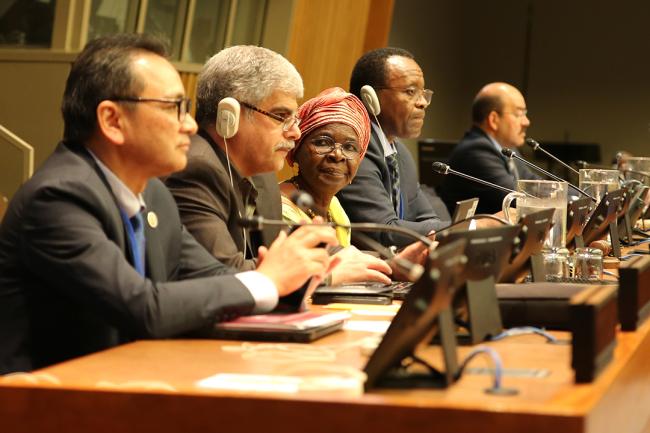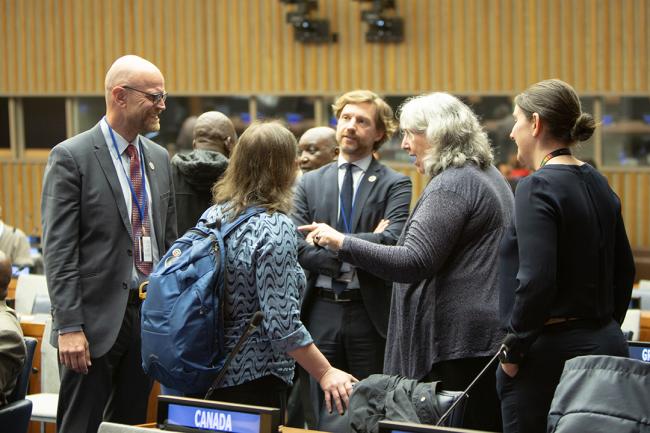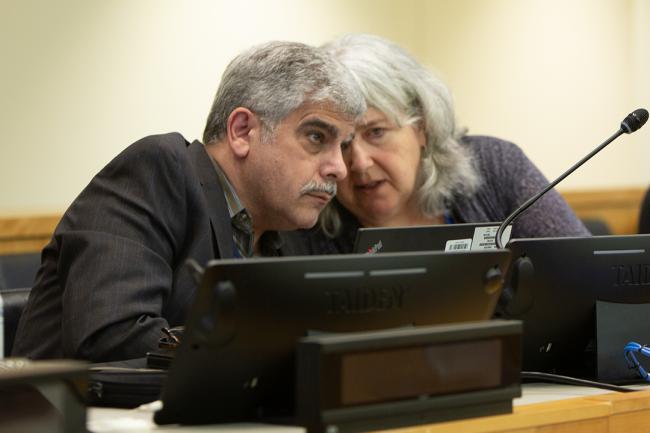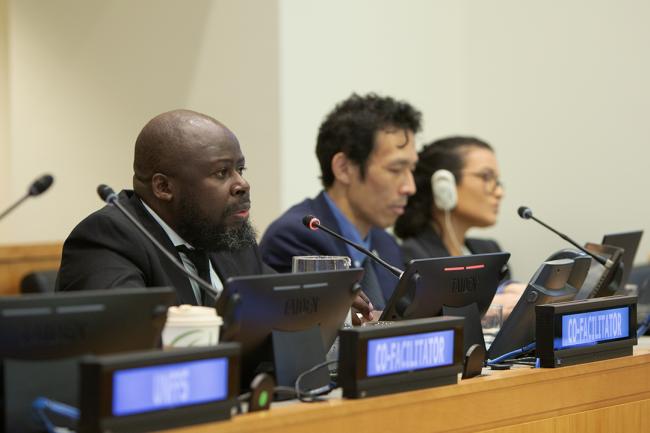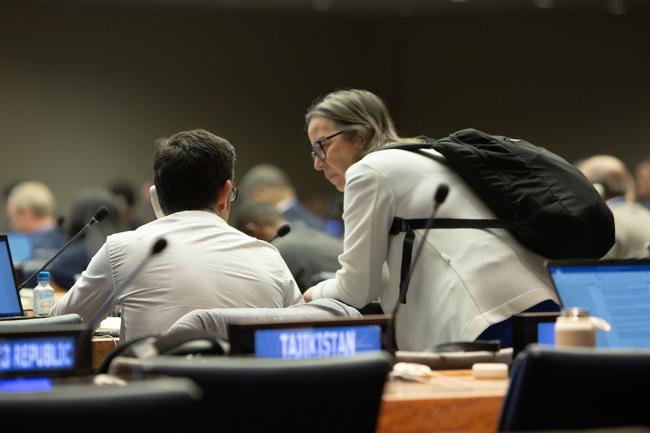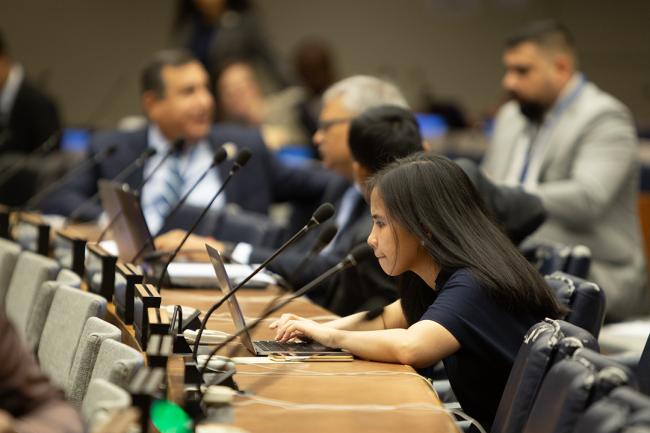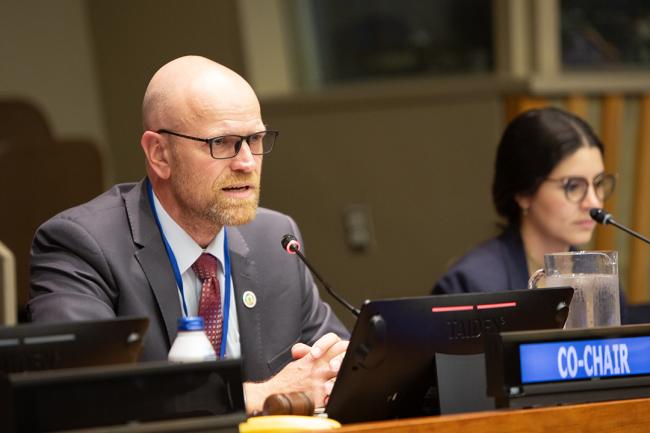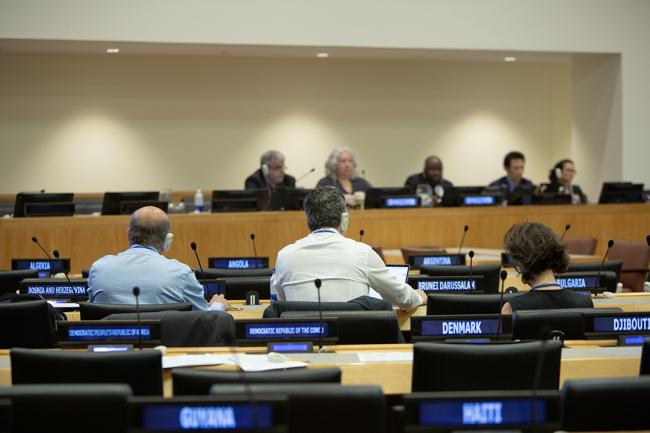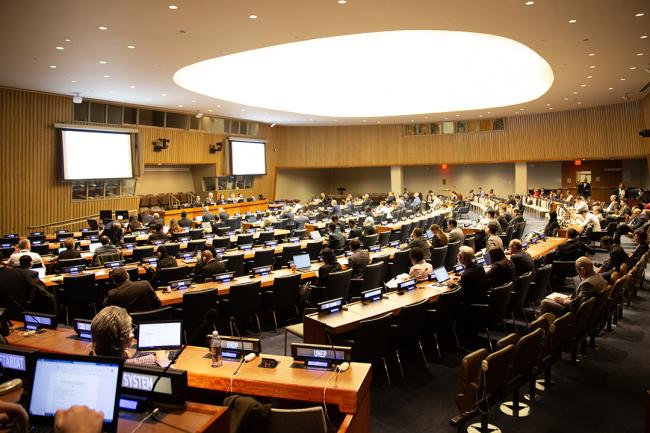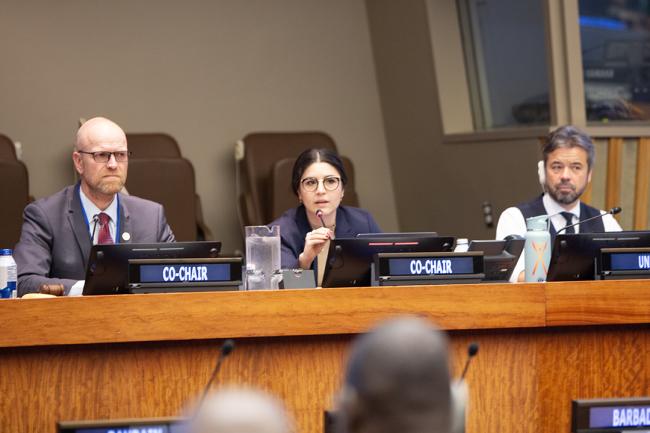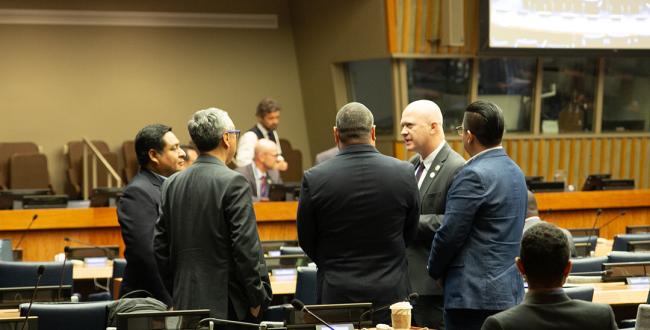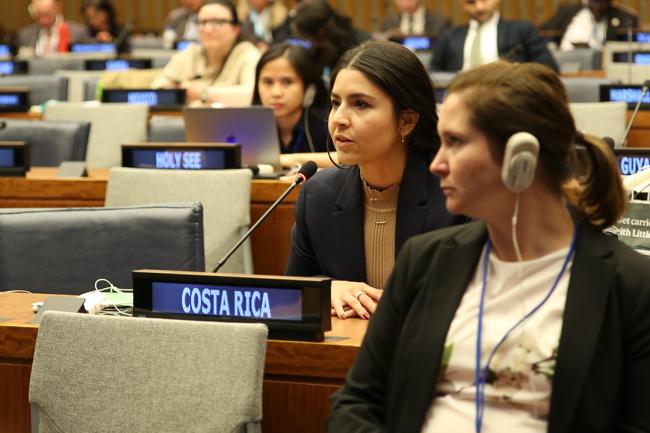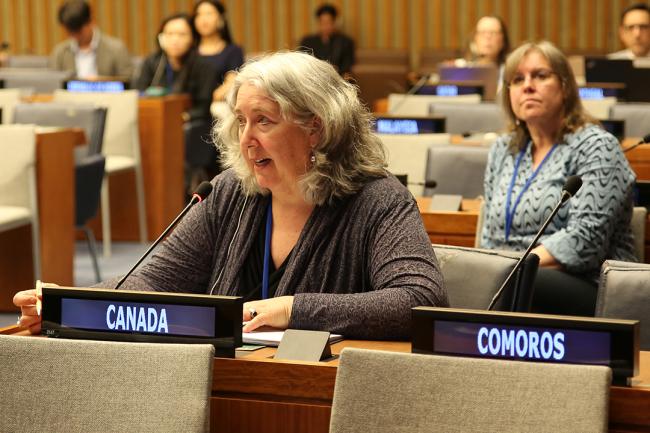At the conclusion of the first full day of negotiations by two “informal groups” on the draft texts of the High-Level Declaration and the omnibus resolution, UN Forum on Forests Chair Zéphyrin Maniratanga noted that some progress had been made in resolving differences but admonished delegates about the limited time remaining before the deadline for completing negotiations at the end of Wednesday, 8 May. He called for all delegates to show “utmost flexibility and understanding” to complete their work on time in a positive and constructive manner. Maniratanga pointed out that all text under consideration was the product of two years of extensive work, months of detailed consultation, and many revisions, saying “it is time to reach decisions.”
Want to dig deeper into today's talks? Read the full Earth Negotiations Bulletin daily report.
The declaration is intended to serve as a high-level political commitment on the way forward on forests, while the resolution would set the mandate for specific future actions by the UN Forum on Forests (UNFF) and its stakeholders for implementing the UN Strategic Plan for Forests, agree the Mid-Term Review on the effectiveness of the International Arrangement on Forests, and set the UNFF’s Quadrennial Programme of Work for 2025-2027.
In the negotiations on the declaration, only a few contentious issues were resolved in spite of several attempts by different members to resolve deadlocks on:
- including specific reference to agriculture as a driver of deforestation;
- specific reference to “developed” countries bearing the responsibility of funding; and
- including reference to the principle of common but differentiated responsibilities of countries in the provision of resources.
Delegates reached consensus on including reference to “Indigenous Peoples, forest communities and local communities” in the draft declaration but agreed to continue informal discussions in small groups on text regarding the placement of “land tenure” and “user rights” as important in advancing sustainable forest management. Delegates also agreed on how to reference the Rio Conventions.
In the negotiations on the omnibus resolution, delegates managed to agree on language regarding support for the UNFF Secretariat, which calls for the Secretariat to submit an information paper on its workload, needs, and gaps, including its human and financial needs, for the Forum’s consideration.
The omnibus resolution informal group also discussed, without a final breakthrough, provisions on bioeconomy, synergies, the Collaborative Partnership on Forests (CPF), and whether to reference “gender-responsive” or “gender-sensitive” approaches in implementing sustainable forest management (SFM) and access to forest finance for SFM. On reference to the CPF, delegates appeared close to agreeing to invite governing bodies of CPF member organizations to conduct an assessment of options to strengthen collaboration within the Partnership. They also invited the UNFF Bureau to reach out proactively to the governing bodies of CPF member organizations to strengthen collaboration and their support for UNFF work.
To receive free coverage of global environmental events delivered to your inbox, subscribe to the ENB Update newsletter.
All ENB photos are free to use with attribution. For UNFF19 please use: Photo by IISD/ENB - Angeles Estrada Vigil

